Here we report on the progress of the leading builders in the Coprocessor ZKonomy, documenting recent significant releases, technical breakthroughs and general updates 👇
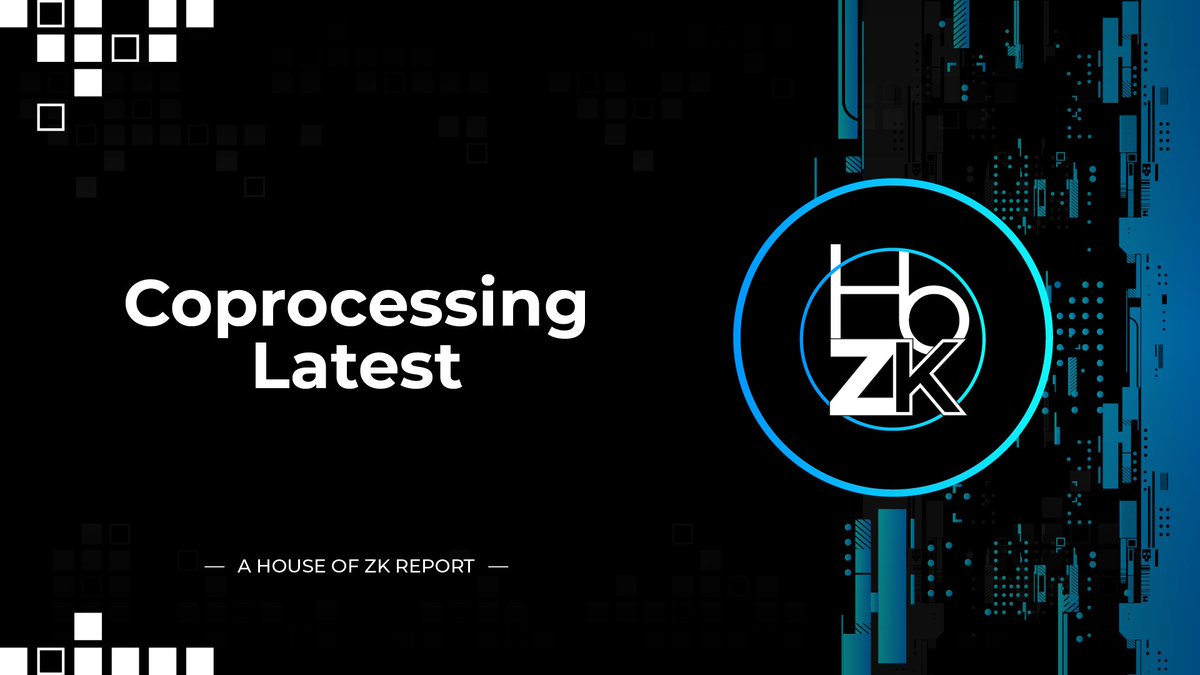
Lagrange
The @lagrangedev research team (Weijie Wang, @chbpap, @s_shravan, and @dipapadopo) has introduced Dynamic zk-SNARKs, a new method allowing cryptographic proofs to be updated in real-time without needing to rebuild from scratch. This advancement improves efficiency for applications that rely on changing data, such as AI, games, and blockchain.
It enables faster, cheaper, and more practical verification, addressing the limitations of traditional, static zk-SNARKs in dynamic environments:
In addition, they continue to expand adoption of DeepProve through new collaborations:
• @0G_labs: Integrated Lagrange’s DeepProve to enable verifiable inference across 0G’s decentralized AI OS (deAIOS), covering compute marketplaces, onchain AI provenance via NFTs, and integration with 0G’s modular storage and data availability layers:
• @Gaianet_AI: Introduced DeepProve to verify AI agent actions and the underlying data they rely on, while jointly developing a cross-chain messaging layer to allow secure AI interactions across ecosystems:
• @nvidia: Joined the NVIDIA Inception Program as the only ZK project selected, working together to scale DeepProve and build verifiable AI solutions that address emerging risks like hallucinations and deepfakes:
• @OpenGradient: Embedded DeepProve into its onchain AI platform, enabling developers to deploy ZK-verified models, build composable AI agents, and launch secure, verifiable AI apps with protocol-level guarantees:
Lastly, @LagrangeFndn has launched as an independent body to support the growth and governance of the Lagrange ecosystem. It will manage the Lagrange Prover Network’s operations, incentives, and decentralization.
While Lagrange continues technical development, the Foundation ensures network reliability and community alignment, promoting a verifiable internet through decentralized ZK infrastructure:
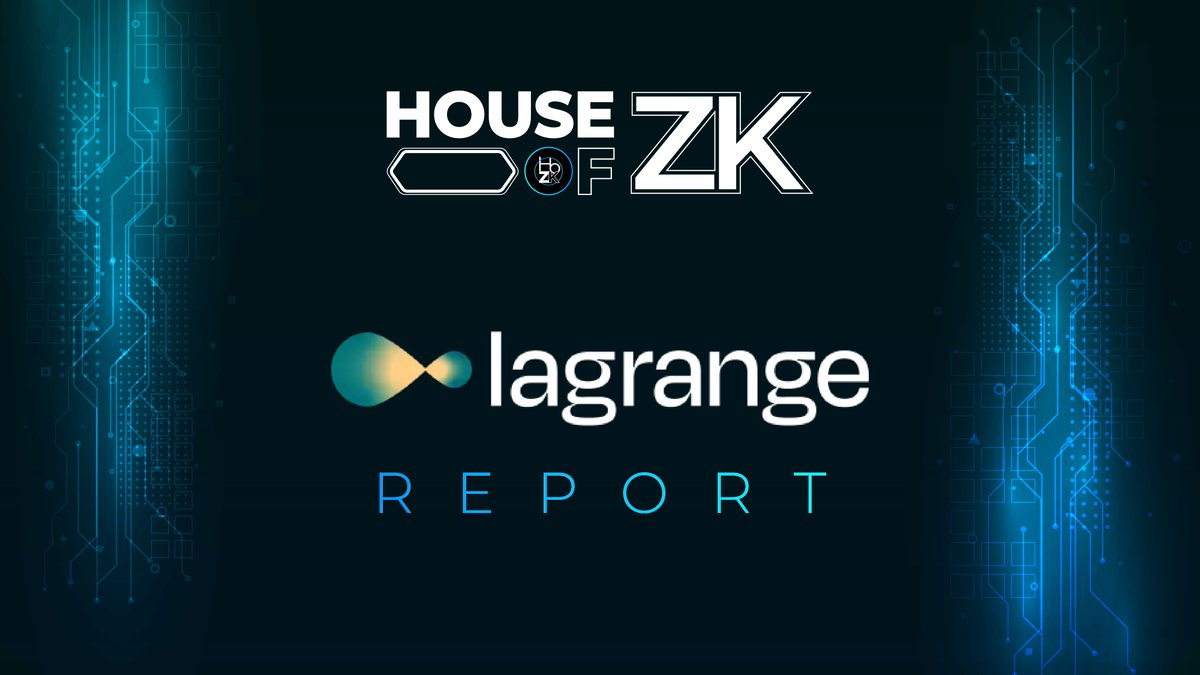
Space and Time
@SpaceandTimeDB is now available on the @Azure Marketplace, offering an enterprise-grade managed database solution. Developers can deploy it in one click to access indexed blockchain data from networks like @ethereum and @zksync.
The service includes APIs, data storage, and AI tools, supporting app development, analytics, and dashboards through the decentralized SXT ecosystem:
In addition, the project has been highlighted in a @cavell_live whitepaper as a secure way for enterprises to share encrypted conversational data using vCon, a new standard for structuring calls, emails, and chats.
The platform uses ZKPs to verify data accuracy without exposing sensitive content, supporting secure benchmarking and collaboration in telecom, healthcare, and financial services:
Moreover, they are supporting the @SuiNetwork community in voting on a protocol upgrade aimed at recovering funds frozen after the recent hack. The new “Vote” section in Sui Explorer allows users to track validator votes, their weight, and current results. This ensures transparency and accountability in the process through real-time, verifiable onchain data:
Also, Space and Time announced that DeFi projects can now use SXT across any blockchain. This is made possible through @chainlink’s CCIP for cross-chain transfers and secure, flash-loan resistant data from Chainlink Price Feeds, supporting broader interoperability and enhanced reliability in decentralized finance:
Besides, @instruxi has launched Attestations V2, using Space and Time with Chainlink to create secure, verifiable audit trails for tokenized real-world assets (RWAs). The system replaces centralized, tamperable data sources with cryptographically proven, queryable offchain data. Verified results are delivered onchain, enabling smart contracts to trust and scale tokenized assets through transparent, decentralized data validation:
Space and Time also continues to expand access to onchain data by enabling indexing for new networks:
• Real-time indexing support for the @arbitrum network. Users gain access to onchain activity analytics, natural language dashboard generation, and the ability to build data-driven apps:
• Launch of smart contract indexing for @avax C-Chain. Developers can submit contract addresses to generate event-based tables, join them with other data sources, and ZK-prove results in sub-seconds:
• @base network indexing is now live in SXT, providing access to SQL tables with metrics on DEX trading, NFT activity, stablecoin flows, and wallet interactions. This gives developers a powerful toolset for creating UX-oriented onchain applications:
Lastly, the project announced several new partnerships, including:
• @Astrarizon: Supporting projects from the @AccVentures accelerator with access to Space and Time’s verifiable data infrastructure and compute credits across the SXT ecosystem:
• @catapulta_sh: Enabling developers to deploy across 20+ EVM chains using real-time, indexed, and ZK-proven data from Space and Time, with support for smart contract logic, event indexing, and custom dashboards via SXT Studio:
• @blocklogica: Helping founders in Blocklogica Labs’ accelerator with compute credits and developer tools to build faster and more reliable onchain applications, backed by Make Infinite and the Space and Time Foundation:
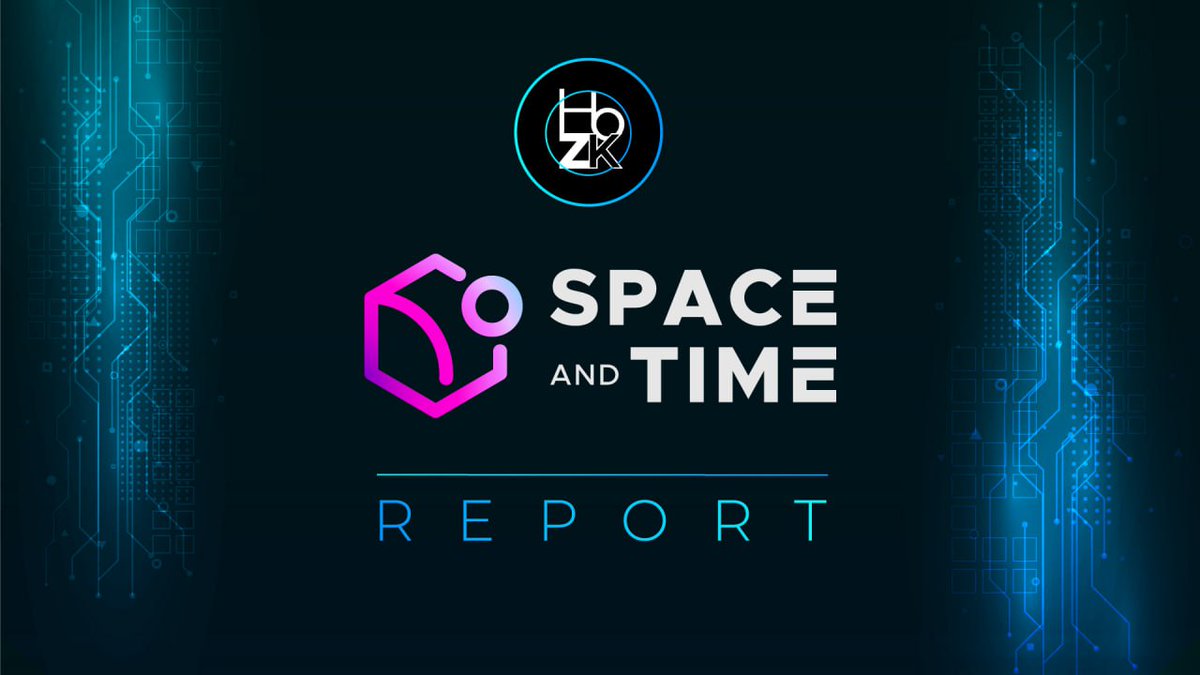
vlayer
@vlayer_xyz shared its latest updates in version 1.0.3, focusing on better performance, clearer error messages, and stronger infrastructure. The release restores missing functions, improves zkTLS performance through a TLSN upgrade, and adds new benchmarks.
Documentation was refined, CI processes stabilized, and old code cleaned up. These enhancements aim to improve usability and reliability, with thanks to the many contributors involved:
Researchers at vlayer, with support from the @GolemFoundation, have published a whitepaper on using the GKR protocol to efficiently prove Keccak-256 hashes in ZK systems. As Keccak is core to @ethereum but ZK-unfriendly, their work presents arithmetic representations and performance modeling showing GKR's efficiency for multiple operations.
The findings aim to improve ZK handling of Ethereum-native functions in scalable, verifiable applications:
Finally, vlayer, through its partnership with @AccountableData, is enabling @noon_capital to deliver real-time, verifiable financial transparency. Noon becomes the first stablecoin to combine proof of reserves with proof of yield, verified via ZK infrastructure. This integration ensures secure attestation of both onchain and offchain financial data, strengthening user trust and setting a new standard in stablecoin transparency:
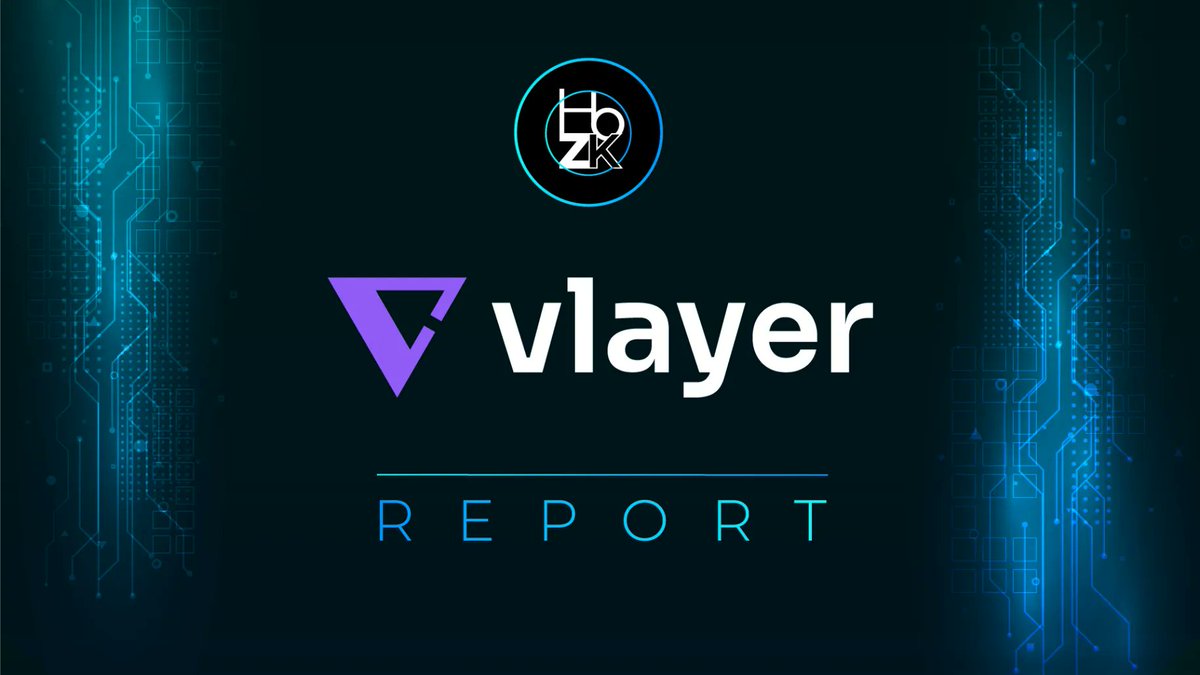
Brevis
@brevis_zk highlighted its role in powering verifiable computation for DeFi, rewards, and data marketplaces, as EigenCloud launched its new platform on @eigenlayer:
Co-founder @no89thkey noted that Brevis’s coChain design—combining optimistic proposals with ZK or crypto-economic dispute resolution—is now reflected in EigenVerify, showing alignment among AVS projects building trustless infrastructure within the EigenLayer ecosystem:
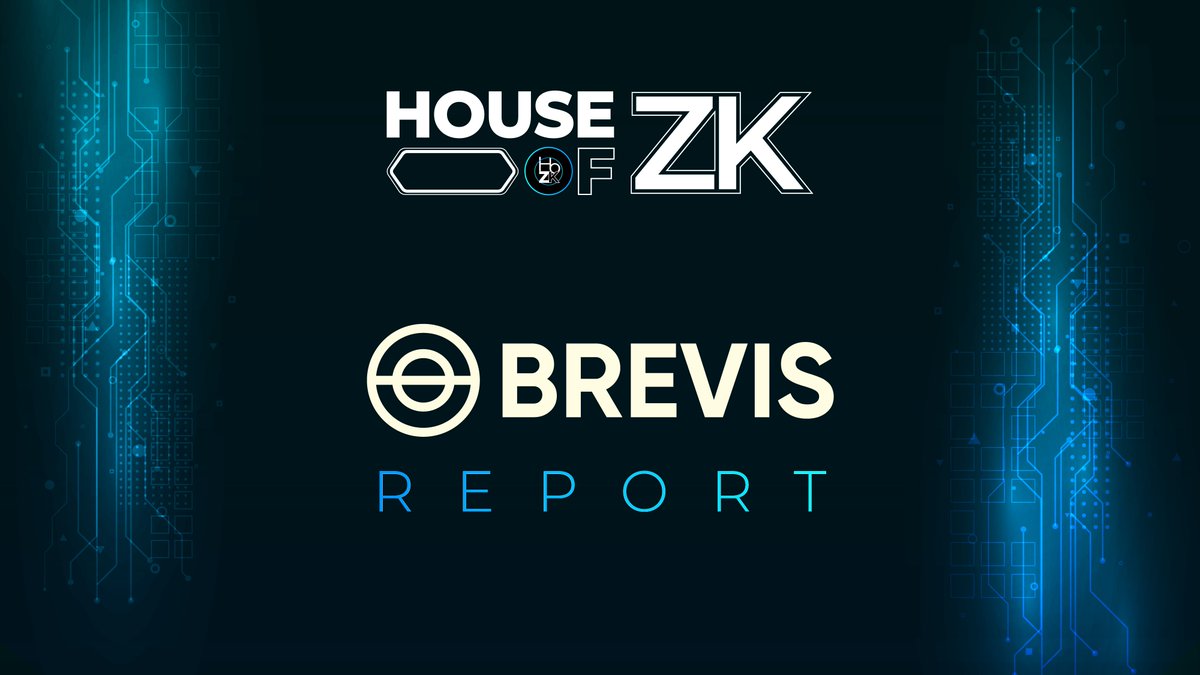
Primus Labs
@primus_labs and @DataDanceChain have partnered to create a user-first data infrastructure that ensures privacy, authenticity, and ownership. DataDance provides a secure environment using encryption and privacy technologies, while Primus introduces zkTLS to verify off-chain data without exposing content.
This system allows AI to access user data only after verification, giving individuals control and enabling compliant monetization of their personal data in AI applications:

Automata
@AutomataNetwork has released its Monthly Update which highlights:
1) UI/UX improvements for both @1rpc_ and @l2faucet flows, backend enhancements for Hoodi, and deployment of key full nodes.
2) The launch of DCAP Attestation v1.0.0 supports verifiable TEEs onchain, now used across 11 networks. released a chatbox for 28+ AI models.
3) Automata also open-sourced its UniFi TDX Prover, verifying 49,000+ agent transactions on @MagicNewto:
In addition, the project has launched DCAP Attestation v1.0.0 on @unichain Sepolia. Developers can now verify Intel SGX and TDX enclaves across 11 networks, enabling integration of secure hardware into smart contracts and advancing trusted execution environments within decentralized applications.
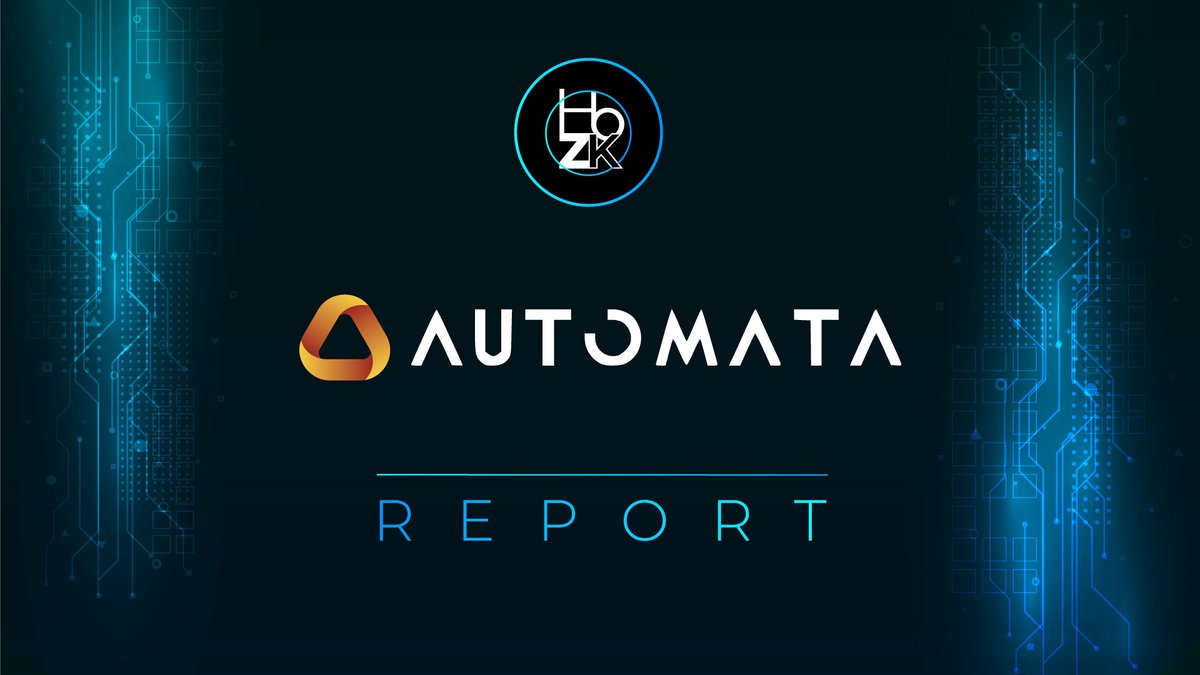
1
1.65K
The content on this page is provided by third parties. Unless otherwise stated, OKX is not the author of the cited article(s) and does not claim any copyright in the materials. The content is provided for informational purposes only and does not represent the views of OKX. It is not intended to be an endorsement of any kind and should not be considered investment advice or a solicitation to buy or sell digital assets. To the extent generative AI is utilized to provide summaries or other information, such AI generated content may be inaccurate or inconsistent. Please read the linked article for more details and information. OKX is not responsible for content hosted on third party sites. Digital asset holdings, including stablecoins and NFTs, involve a high degree of risk and can fluctuate greatly. You should carefully consider whether trading or holding digital assets is suitable for you in light of your financial condition.


